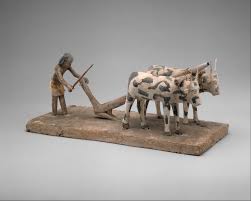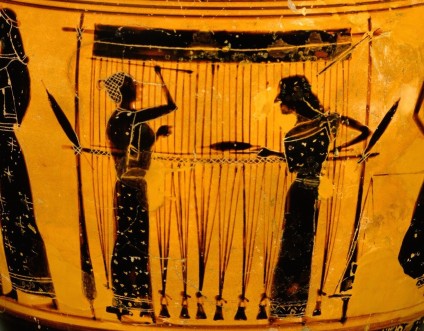|
Roman Stoics, like Hierocles and Musonius, wrote about more than metaphysics, psychology or religion. They wrote about human affairs, and in particular marriage, the family, and household management. They regarded these topics as properly philosophical, a feature of their thought that later accounts and editions of their work have tended to obscure. So what did they think? Stoics beleived that the purpose of marriage is not merely procreation, but the common pursuit of the good life. For Musonius this meant that husband and wife belong to each other body and soul and he pretty much left it at that. Hierocles went into more details in his discussion of what husband and wife must have in common. Being married, he says, is a solace in old age and illness, as it provides companionship and the sharing of burdens. A wife is a blessing because she will help her husband in all areas of his life, and where she cannot reach physically, because she is not allowed to be out in the public place, she will listen to him recount his day, and either help him resolve problems, or if that is not possible, bring him comfort and relief. But marriage is more than just sharing emotional burdens, Hierocles tells us: a husband and wife must also share physical ones. Household management is ‘a matter of shared activities between husband and wife.’ We know what to expect from the Stoics. No matter how generous they are in their principles, nothing will convince them to attempt to effect changes in the way human society works. They are more likely to recommend that we work on acceptance and try to achieve peace of mind than start a revolution. So does Hierocles draw back from the claim that all activities are to be shared by husband and wife? Yes, to some extent. His treatise on Household Management makes the claim that household tasks ought to be divided between husband and wife according to their appropriateness: These, then, should be divided according to what is most [pertinent to each spouse]: thus, to the husband are referred tasks concerning fields, marketplaces, and city business, whereas to the wife are referred those relating to the spinning of wool, breadmaking, and, in general, domestic tasks. (93) But although Hierocles thinks that some activities are better suited to men than to women, he does not believe that the two sets of tasks ought to be strictly separated, and indeed, thinks that husbands should receive some training in womanly duties and vice versa: ‘But one must not think that the one group should be without a taste of the other tasks’ (93). He also believes that women ought to be physically strong, so as to be able to do agricultural work, and that their husband should share with them business and political concerns, so that they may solve problems together and take over from them when the husband is sick or traveling: And in truth, in festivals she can take care of sacrifices and rites along with us; during her husband’s trips abroad she can maintain the house in order and not altogether without a manager; she can take charge of the slaves; she can be an assistant during illnesses—it would be a long story to go through everything one by one. (73-75) For of other domestic tasks should not one believe that most, indeed, are suitable to husbands rather than to wives? For some are very tiring and require bodily strength, such as grinding, kneading flour, splitting wood, drawing water, moving furniture, shaking out bedding, and all that is similar to these things. But about what about more delicate work, such as spinning? There is nothing wrong with men doing these things, says Hierocles, unless their masculinity is not secure: Men who are too respectable feel something not unreasonable, indeed, in imagining that taking up weaving is not for them. For since for the most part shabby little manikins and a tribe of effeminate and womanish types rush headlong into wool-working in their zeal for femininity, stooping to these things does not seem to be in line with a true man. Thus I myself would not advise any men who did not exhibit complete confidence in their own masculinity and restraint to touch such a thing. If, however, through a life of this kind he should have rendered himself free of every absurd suspicion, what will prevent a husband from sharing in these things too with his wife? (95).
0 Comments
Leave a Reply. |
AboutThis is where I blog about my new book project (under contract with OUP): a history of the philosophy of the home and domesticity, from the perspective of women philosophers. Archives
March 2024
Categories |
Proudly powered by Weebly


 RSS Feed
RSS Feed